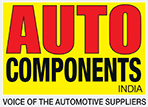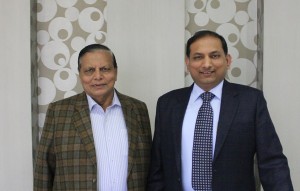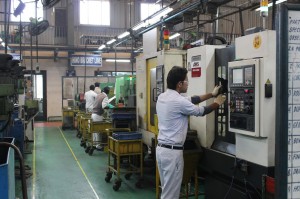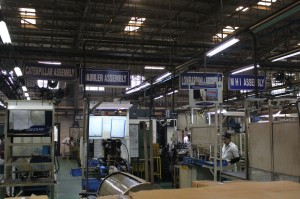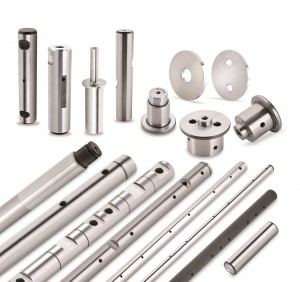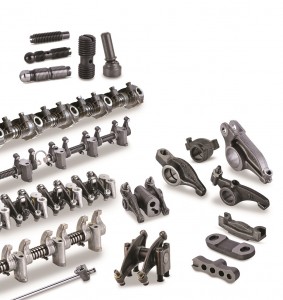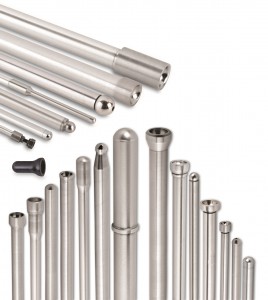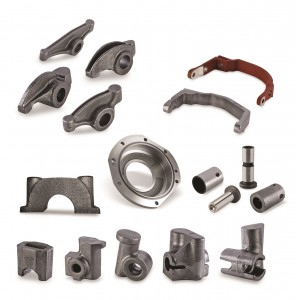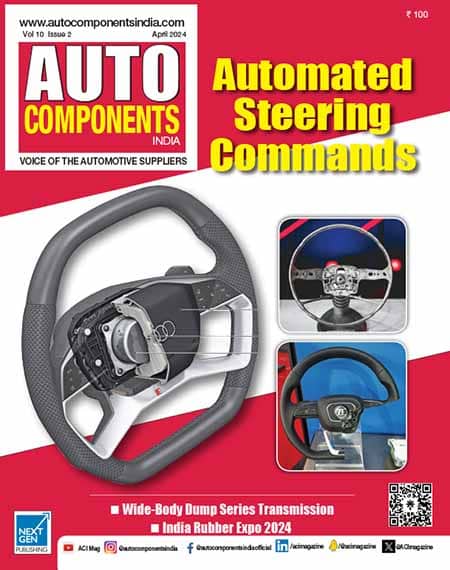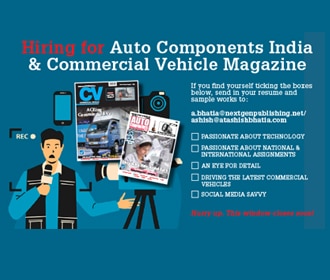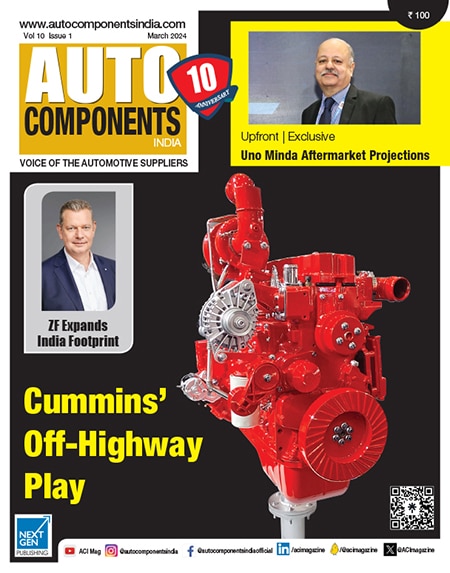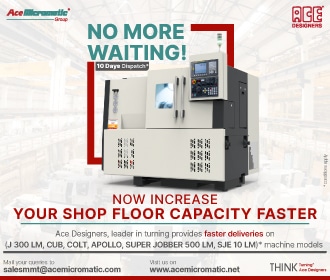Text & Photos: Anirudh Raheja
Ghaziabad Precision Products (GPP), a Tier-1 manufacturer of push rods, rocker arms and shaft assemblies is now focusing on expanding its reach by developing complete solutions in valve train components.
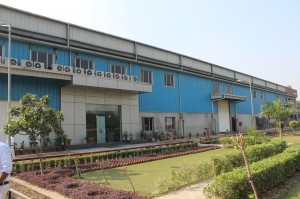
![]() “We are developing rocker arm and shaft assembly with overhead cam application and tappets keeping in mind the new platforms which are expected to be launched with high horsepower engines having same cylinder volume that still comply better with environmental norms. Along with this, we are also developing Cold Formed Valve Bridges that do not have any parting line with some OEMs,” said Amit Agarwal, Director, Ghaziabad Precision Products.
“We are developing rocker arm and shaft assembly with overhead cam application and tappets keeping in mind the new platforms which are expected to be launched with high horsepower engines having same cylinder volume that still comply better with environmental norms. Along with this, we are also developing Cold Formed Valve Bridges that do not have any parting line with some OEMs,” said Amit Agarwal, Director, Ghaziabad Precision Products.
GPP started off with manufacturing of coil expanders in 1988; the Ghaziabad based company kept developing expertise in diesel engine components especially for commercial vehicles, off highway vehicles, tractors and also for gensets manufacturers and then graduated to push rods, castings, rocker arms, shafts and ultimately sub-assemblies. Having a combined area of 22,000 sqmt as of today, GPP operates 3 production plants producing 23.8 million units annually.
In order to further enhance its expertise, in 2008, GPP also signed a 50-50 JV with Kasuya Seiko Company, who are rocker shaft assembly experts based out of Japan. The Ghaziabad based Kasuya GPP facility has dedicated assembly lines for Caterpillar, Daimler, Lombardini, Polaris, Navistar and MHI. Though a fair amount of automation is involved at this facility by deploying CNC and PLC machines as per OEM demands, plans to further streamline them to get them automated in order to set up benchmarks with the industry standards are shaping up well at GPP. As India is opening the gates for every manufacturer to come and make in India, Agarwal feels it is important to make products of global quality in India to stay competitive globally. Towards this the company has employed over 550 engineering professionals.
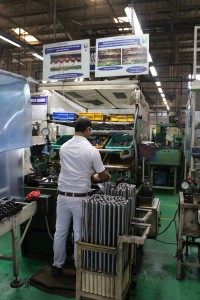 In 2013, as part of backward integration plans, GPP had set up a state-of-the-art foundry with 3,000 tonne capacity in Sitarganj, Uttarakhand. With an investment of Rs 15 crore on plant and machinery, the foundry has been developed as per Japanese standards for manufacturing processes from pattern designing to fettling, which has already been approved by Ashok Leyland within one year of its setup. Along with this, the fully automated shell molding lines at the facility specialise in SG Iron, Chilled Grey and Ductile Iron castings with a range of 50 gm to 5 kg.
In 2013, as part of backward integration plans, GPP had set up a state-of-the-art foundry with 3,000 tonne capacity in Sitarganj, Uttarakhand. With an investment of Rs 15 crore on plant and machinery, the foundry has been developed as per Japanese standards for manufacturing processes from pattern designing to fettling, which has already been approved by Ashok Leyland within one year of its setup. Along with this, the fully automated shell molding lines at the facility specialise in SG Iron, Chilled Grey and Ductile Iron castings with a range of 50 gm to 5 kg.
Despite having limited scope of involvement in product design and material selection, GPP is working closely with a few OEMs for using hollow push rods instead of solid ones. Cost reductions have been achieved by outsourcing of rough operations. Close to 30% of the parts used in various assemblies of GPP products are outsourced to dedicated suppliers. However, stringent checks to ensure quality standards are complied with. “We develop many of our critical parts inhouse to ensure global standards are adhered to. Yet we outsource 30% of our parts used in various assemblies based on our specifications. For us every small part is important since if any one of it fails, the engine will fail,” adds Agarwal.
The company’s R&D focuses on new products and plant automation to increase capacity as per customers’ demand. Notably, it is also exploring options to establish joint ventures for technology transfer and also to enhance its own manufacturing capabilities in order to maintain high quality standards. Agarwal feels that growing together is important and it is necessary to do the best for the job at hand. Instead of reinventing already available technologies, GPP is looking out for partners to cash in on their technical knowhow and improve the manufacturing processes. “We have already geared up for hunting technologies and would like to tie up for the particular technologies for setting up new joint ventures in India with interested ones. JV with a technology partner is a win-win for all the stakeholders,” admits Agarwal.
Principally, GPP tries to make an equal balance between its exports and domestic market revenues. Presently working as a built-to-print manufacturer, GPP serves nearly all top CV manufacturers in India from Tata Motors, Ashok Leyland, M&M, Honda Siel Power Products, SML Isuzu, Swaraj Engines Ltd. to Cummins India et al. Particularly in India, it is a 100% supplier for push rods, rocker arms and shaft assemblies to VECV and manages just-in-time supplies for them through their warehouses.
GPP has been a single source for supplying push rods to Caterpillar globally and also has won best quality awards from them. Not only this, it is also focusing on expanding its global reach in US and European markets in the near future. It is already working closely with Volvo group in India for supplying various valve train components for their 5 litre and 8 litre engines being manufactured at their VEPT, Pithampur plant.
Challenging tasks ahead
Despite the car segment promising a huge opportunity in India, AgarwaI wants to focus on enhancing the present capability and make components for CV diesel engines. “Being engine components, all of our products undergo a lot of fatigue and endurance testing. From the date of inception, PPAP approval processes, SoP, engine validation and fatigue testing is done. I would be very happy if we and OEMs cut down this gestation period for anything less than 2 years,” beams Agarwal. Irrespective of market slowdown in national and global markets, the group has been growing at a healthy rate of over 20% for the last 5 years.
Moving forward, Agarwal has plans to develop hydraulic tappets and hydraulic lash adjusters. He feels having skilled workforce will be a major issue when things start to improve in the industry. Besides, he is also worried about sustainability of supporting industries. “OEMs and Tier-1 manufacturers today have a strong capability to sustain the ups and downs of the business cycle. But Tier-2 and Tier-3 suppliers have totally been neglected. Down the line, without improving the situation of these suppliers there will be a big challenge for Tier-1 and OEMs to maintain a healthy growth,” concluded Agarwal. (END)
